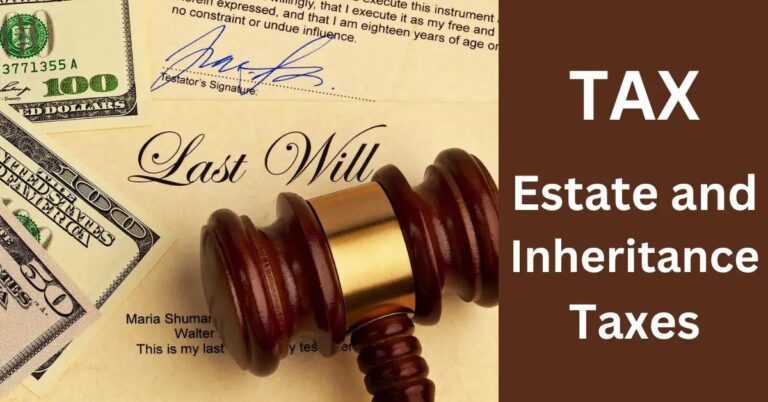TL;DR:
- Tax liability: Know local tax rates and research host country’s tax laws.
- Double Taxation Agreements: Prevent paying taxes twice; check if your host country has such agreements.
- Foreign Earned Income Exclusion: Exclude up to $112,000 of foreign income from U.S. taxes, meeting specific tests.
- Tax-efficient investment strategies: Diversify investments and explore low-tax or tax-free options abroad.
- Pension transfers: Verify tax on withdrawals and possible benefits for transferring pension funds.
- Tax residency: Know rules; affects tax application.
- Foreign pensions: Check if both host and original countries tax them.
- Social Security abroad: Tax treaties might reduce or eliminate additional U.S. taxes.
- Foreign Tax Credits: Reduce U.S. tax bill by using credits for taxes paid in your host country.
- Filing requirements: Must file annual U.S. tax returns and FBAR if applicable.
- Tax treaties: Check provisions to avoid double taxation and gain exemptions.
- Retired veterans: Some benefits are tax-free abroad.
- Tax-efficient retirement investment strategies: Diversify globally, use trusts, and balance high yield with tax efficiency.
- Filing returns: Follow deadlines, use the correct forms, and consider using specialized tax software.
- Tax residency rules: Determine your status to plan taxes better.
Retiring abroad can be a dream come true, but don’t forget about taxes! In this post, I’ll guide you through key tax considerations for expats in retirement. We’ll dive into tax planning strategies, international tax laws, and how to avoid double taxation. You’ll also learn about benefits from tax treaties and managing Social Security and foreign pensions. Make your golden years abroad stress-free by mastering these tax insights!
What Are the Key Tax Planning Strategies for Expats in Retirement?
Understanding Your Tax Liability in Your Host Country
Tax rules differ by country. You need to know the local tax rates. Each country has its own set of tax laws. Make sure to research these well in advance.
Utilizing Double Taxation Agreements to Your Advantage
Double Taxation Agreements (DTAs) prevent you from paying taxes twice. Many countries have these deals with the U.S. These agreements often reduce your overall tax bill. Check if your host country has such an agreement with your home country.
Taking Advantage of the Foreign Earned Income Exclusion
The Foreign Earned Income Exclusion (FEIE) lets you exclude up to $112,000 of foreign income from U.S. taxes (as of 2023). However, this does not apply to pensions or retirement income. You must meet either the physical presence test or the bona fide residence test to qualify.
Implementing Tax-Efficient Investment Strategies
Consider setting up investments that have low tax rates abroad. Look for tax-free investment options available in your host country. Diversify your portfolio to reduce risk and improve tax efficiency.
Navigating Pension Transfer Options
When retiring abroad, you may want to transfer your pension funds. Check if your host country taxes your pension withdrawals. Some countries offer tax benefits for transferring pension funds under specific schemes. For instance, the UK has Qualifying Recognised Overseas Pension Schemes (QROPS).
How Do International Tax Laws Affect Retirees Living Abroad?
Determining Tax Residency Status
Understanding your tax residency status is crucial. Each country has different rules. Residency status affects how taxes are applied. Generally, you are a resident if you live there for a set number of days per year. You should check the tax residency rules of your host country to avoid surprises.
Tax Implications of Receiving Foreign Pensions
Foreign pensions can complicate taxes. Some countries tax foreign pensions while others don’t. If you get a pension from a different country, that country may tax it. But your host country might tax it too. Always check double taxation agreements to see how your country deals with foreign pensions.
Social Security Tax Obligations
Do you pay taxes on Social Security if you live abroad? The answer is maybe. If you are a U.S. citizen or resident, you must report worldwide income, including Social Security. But tax treaties might help you. Some treaties exempt Social Security benefits from additional taxes. Check which treaties apply to you.
Navigating Tax Treaties and Agreements
Are you protected by tax treaties? Tax treaties can reduce or eliminate double taxation. These agreements dictate where you pay taxes on retirement income. Make sure to understand how the relevant treaties affect your financial obligations. They can save you a lot of money. Check your country’s treaties with the U.S.
Filing Requirements and Considerations for Expat Retirees
Don’t forget about filing requirements. Even if you don’t owe taxes, you still must file. The U.S. requires expats to file annual tax returns. And if you have foreign accounts, FBAR (Foreign Bank and Financial Accounts Report) is vital. Failure to report can lead to hefty penalties. Use online tax software for easier filing. Understanding these requirements is key to staying compliant.
How to Avoid Double Taxation as an Expatriate Retiree?
Utilizing Foreign Tax Credits
Do US expats pay double taxes? No, but you must be savvy. You can use foreign tax credits to lessen your U.S. tax bill. These credits reflect taxes you’ve already paid in your new country. Thus, you won’t pay tax on the same income twice. Look into Foreign Tax Credits to learn how they work.
Understanding Tax Treaties and Exemptions
What are the tax rules for expats? Many nations have agreements with the U.S. to stop double taxation. These tax treaties decide which country taxes your income. Treaties cover various types of income like pensions, salaries, and dividends. Explore the treaty specifics as they can save you money.
Countries Where Your Social Security Is Exempt from U.S. Taxes
Some nations have pacts that benefit Social Security checks. Countries like Canada, the U.K., and Germany have these deals. They can shield your benefits from extra U.S. taxes. Check if your host country has such a treaty with the U.S.
Mitigating Double Taxation Pitfalls
Even with credits and treaties, pitfalls exist. Keeping up with rules helps you avoid errors. It’s wise to seek help from a tax advisor familiar with both U.S. and local tax laws. They can ensure you’re using all options and staying compliant.
What Benefits Can Expats Get from Tax Treaties in Retirement?
Countries with Favorable Tax Treaties for Retirees
Many retirees want to know: Do expats pay taxes on retirement income? The answer depends on the country you move to. Some countries have special tax treaties that can reduce or even eliminate your tax burden. For instance, countries like Portugal, Thailand, and Malaysia offer favorable tax rules for retirees. Portugal, for example, has a Non-Habitual Residency tax program, which offers tax exemptions for up to 10 years.
Important Provisions in U.S. Tax Treaties for Expats
U.S. tax treaties aim to avoid double taxation. Treaties often include provisions that help you get tax credits or exemptions. These provisions make sure you aren’t taxed twice on the same income. For example, the treaty between the U.S. and the U.K. allows you to avoid double taxation on social security and pensions. Each treaty is unique, so you should read the specific U.S. tax treaty for the country you reside in.
Capital Gains Tax Treatments
Capital gains tax is another concern for expats. Generally, you are liable to pay capital gains tax in your home country. However, some countries have agreements that exempt you from paying this tax on certain gains. For example, Spain has rules that exempt long-term residents from paying capital gains tax on the sale of their primary home. Understanding these rules can save you a lot of money when you sell assets like real estate or stocks.
Tax Benefits Specific to Retired Military Veterans
Are you a retired military veteran living abroad? There are specific tax benefits for you as well. Veterans generally receive benefits like pensions and disability payments that might be tax-free in some countries. For instance, the U.S. has agreements with several countries that allow veterans to exclude their military pensions from taxable income. If you served in the military, you can often access unique tax perks that make living abroad more affordable. Check the specific benefits that apply to you as a retired veteran.
Understanding these tax aspects can make your retirement abroad both affordable and enjoyable.
How to Manage Social Security Benefits and Foreign Pensions?
Do you pay taxes on Social Security if you live abroad? Yes, you might. U.S. Social Security benefits are still taxable even if you’re living in another country. The key point is that the IRS considers Social Security benefits as part of your global income.
Next, let’s talk about reporting requirements for foreign pensions. If you have a foreign pension, you must report it to the IRS. This includes completing Form 8938 and filing it with your tax return. Always disclose foreign pensions to avoid stiff penalties.
Now, onto tax treatments of U.S. Social Security benefits abroad. Some countries have a tax treaty with the United States that can reduce or eliminate your U.S. tax on these benefits. For example, the U.S.-Canada tax treaty allows Canadian residents to avoid double taxation on Social Security.
When planning for taxation of retirement income, know this: each country has its own rules. Be sure to check the tax rates, exemptions, and benefits in your host country. It’s wise to consult with a tax advisor who understands both U.S. taxes and the tax laws of your host country.
Managing real estate investments and their tax implications is also crucial. Many expats own property both in the U.S. and abroad. For any real estate outside the U.S., you may face foreign property investment tax. It’s vital to understand the local property taxes and any potential capital gains taxes if you sell the property.
Furthermore, don’t forget that owning foreign real estate can trigger U.S. tax laws like the Foreign Account Tax Compliance Act (FATCA). You must report any foreign financial assets, including real estate held in a trust or foreign corporation. For more detailed information, visit the IRS international tax page.
Finally, balancing retirement income and tax obligations can get tricky. Stay informed, plan, and consult with experts. This helps avoid unpleasant surprises and ensures your retirement remains stress-free and financially healthy.
What Are the Best Tax-Efficient Investment Strategies for Expats in Retirement?
Do expats pay taxes on retirement income? Yes, they usually do. How much depends on where you live and the treaties in place. It’s vital to understand your tax obligations both at home and abroad.
First, diversify investments globally. This means spreading your money in different countries. By doing this, you lower your risk and can benefit from various tax structures. If one country’s taxes go up, another’s may not.
Next, consider setting up overseas trusts and estates. These can offer great tax benefits. Trusts, for example, can protect your money from high taxes. They also provide control over how your assets get divided.
Always balance high yield with tax efficiency. A high return on your investment is good only if taxes don’t eat it all up. Stick with countries that have lower tax rates on retirement income.
Compare cost of living impacts on your investment strategy. Lower cost of living means your money stretches further. It also helps in reducing the overall retirement expenses.
For example, some countries have a lower cost of living which impacts how much you need to save. Areas with lower taxes and living costs tend to be better for expats in retirement.
Lastly, use tools like a tax considerations for expats in retirement calculator. These can help you plan better. They show you how different investments will get taxed. They also help you see the total cost of living in your new country.
In conclusion, investing wisely as an expat means thinking globally and locally. Diversify your investments and use trusts to lower your taxes. Be aware of the cost of living and always balance risk with reward.
For more detailed insights and tips, check out this resource about tax-efficient investments abroad. It provides useful advice tailored for expats like you.
How to File Tax Returns as an Expat Retiree?
Filing tax returns as an expat retiree involves several key steps. First, let’s discuss deadlines. As a U.S. expat, your normal tax deadline is April 15, but you automatically get an extension to June 15. Even with this extension, if you owe taxes, you need to pay by April 15 to avoid interest charges. If you still need more time, you can file for an additional extension to October 15 by submitting Form 4868.
Now, let’s talk about the Foreign Bank Account Reporting (FBAR). If you have foreign bank accounts with more than $10,000 at any point in the year, you must file an FBAR using FinCEN Form 114. It is crucial for staying compliant with U.S. laws. Not reporting these accounts can lead to severe penalties.
Next, you need to know about the IRS forms specific to expats. You will need to file Form 1040 as your main tax form. Along with it, if you are claiming the Foreign Earned Income Exclusion, file Form 2555. To claim foreign tax credits, use Form 1116. If you own a foreign business, Forms 5471 or 8865 might be necessary.
For ease and accuracy, consider using online tax software designed for expats. These tools can guide you through the complex filing process. Some well-known software include TurboTax and H&R Block, which provide expat-specific versions.
In addition, stay vigilant about deadlines and use tools like tax software to help. Ensure you file all the necessary forms and stay compliant with foreign bank account reporting.
What Are Tax Residency Rules and How Do They Affect You?
Determining Your Tax Residency Status
Tax residency rules can get complex. Your tax residency status decides if you pay taxes in one country or another. Do retired expats pay taxes? Yes, usually. It all depends on where you hold tax residency. Each country has its own rules to figure this out. For example, some countries use the number of days you stay there. Others consider where your primary home, or domicile, is.
Changing Domicile vs Residency for Tax Purposes
It’s key to know the difference between domicile and residency. Domicile refers to your permanent home. Changing your domicile is tricky and involves proving that you’ve moved for good. Residency is often based on time spent in a country. Many expats choose to change their residency instead, which may have fewer steps than changing your domicile. You must be careful because each country’s rules are different.
Understanding How Different Countries Establish Tax Residency
Countries like the U.S. tax their citizens no matter where they live. Many other countries use tests to see if you’re a tax resident. Some have “183-day” rules, meaning if you spend 183 days or more in a country, you are a tax resident there. For others, having a house or business may count. Knowing these rules helps you plan better. This can help lower your tax burden.
Strategies for Optimizing Tax Residency Status
Optimizing your tax status means paying attention to tax laws. One strategy is to live in countries with favorable tax agreements. These agreements can help reduce the taxes you owe. Another tip is to split your time between countries smartly. This way, you avoid becoming a tax resident in high-tax countries. If you’re a U.S. citizen, learn about the Foreign Earned Income Exclusion. This can allow you to exclude some international income from your taxes. Planning carefully can save you a lot of money.
Tax residency is complex, but understanding its rules helps. Stay informed, and get advice from tax experts.
Conclusion
Recap: We examined tax liabilities, double taxation agreements, and tax-efficient investments. We covered how to file taxes and manage social security benefits abroad. Understanding and navigating these can save you money and stress. Proper planning with these strategies helps you enjoy a worry-free retirement overseas.







